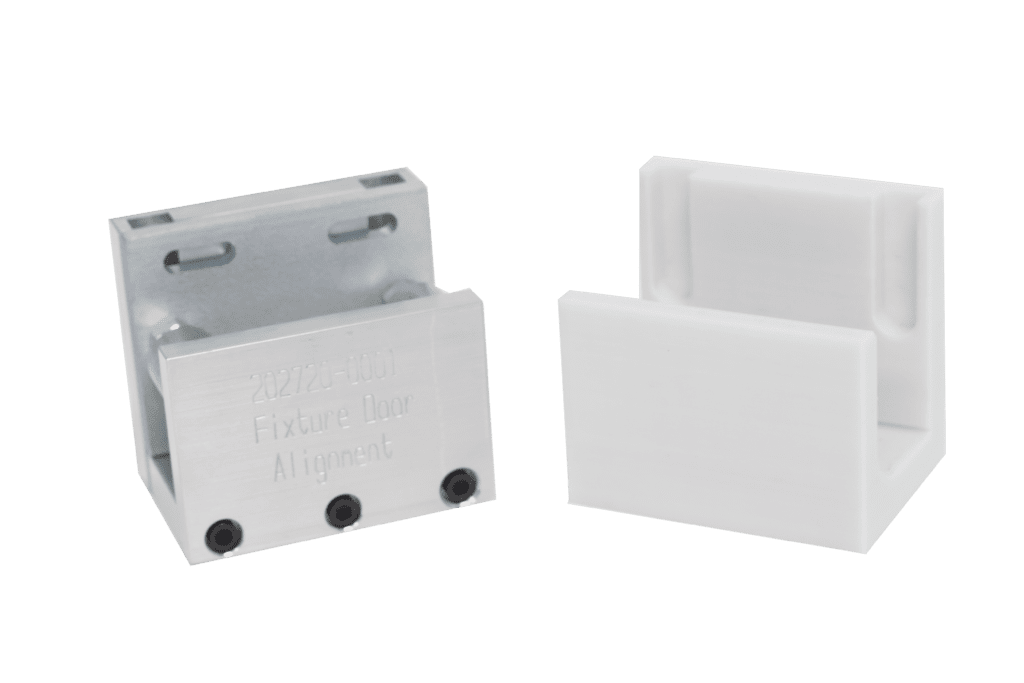Overview
Polyjet and FDM printing technology provide fast and accurate methods to produce and manufacture tools. 3D printing jigs and fixtures aid in backlogging for an in-house machine shop and are ideal as a bridge-to-tooling solution. Produce assembly and machining fixtures in one-quarter the time and at half the cost of conventional machining.
Advantage
Manufacturing tools are most commonly machined or fabricated from metal, wood or plastic. Like the items they help produce, these tools go through the design, documentation, production and inspection processes. Elaborate or intricate tools may require several cycles of design, prototyping, and evaluation to reach the required performance. On average, each iteration of manufacturing tooling takes between one and four weeks to design and build. Polyjet and FDM technologies can help:
- Reduce lead times by 40-80%
- Reduce cost by 70-95%
- Apply integrated design, eliminating assembly & improving performance/accuracy
- Allow design freedom for improved function and ergonomics
Application
Unlike CNC machining 3D printing gives you the flexibility to optimize jigs, fixtures, and other manufacturing aids for specific tasks, components, individuals or equipment.
Assembly
- Bring production online quicker while avoiding costly errors.
- 3D printing tools are a great way to support agile manufacturing and improve product quality
End-Effector Tooling
- Reduce wear & tear on robotic arms and motors by reducing end-effector weight.
- 3D print lightweight plastics to control material density, consolidate gripper or fixture components
Health & Safety
- Improve worker safety and comfort by switching from traditional metal tools to 3D printed lightweight thermoplastics that reduce strain and enhance productivity
